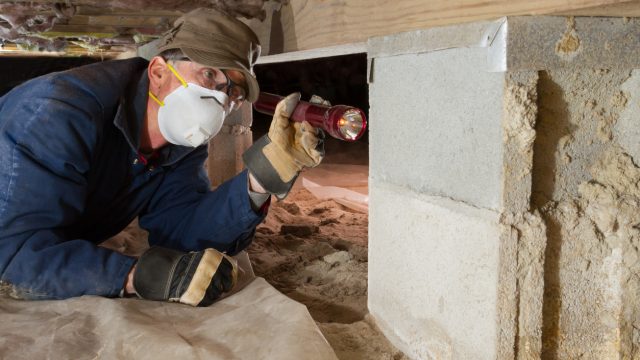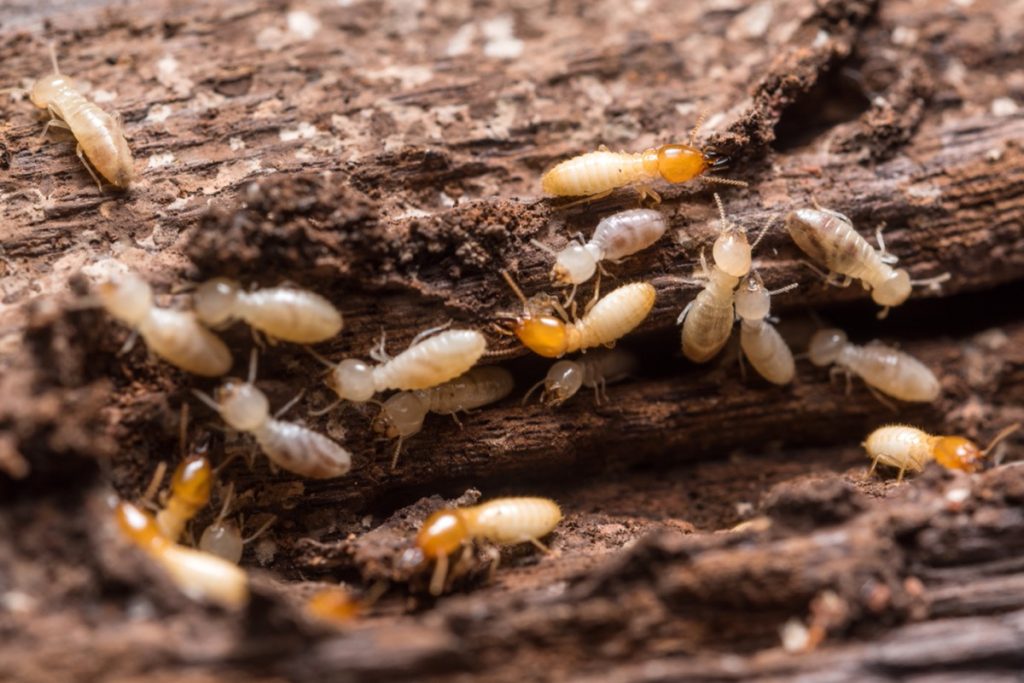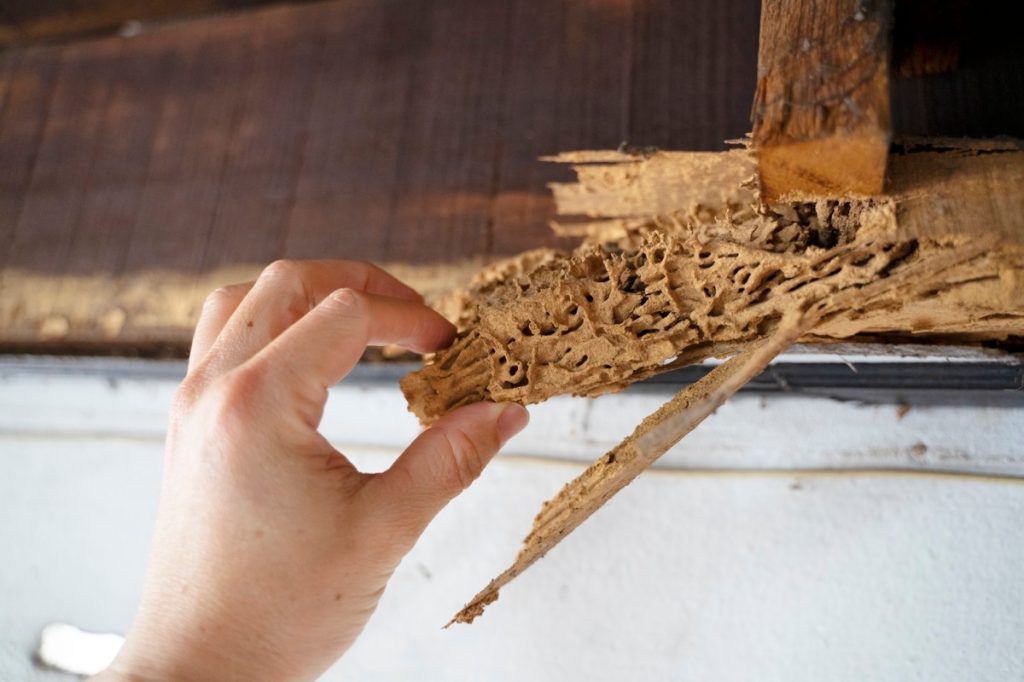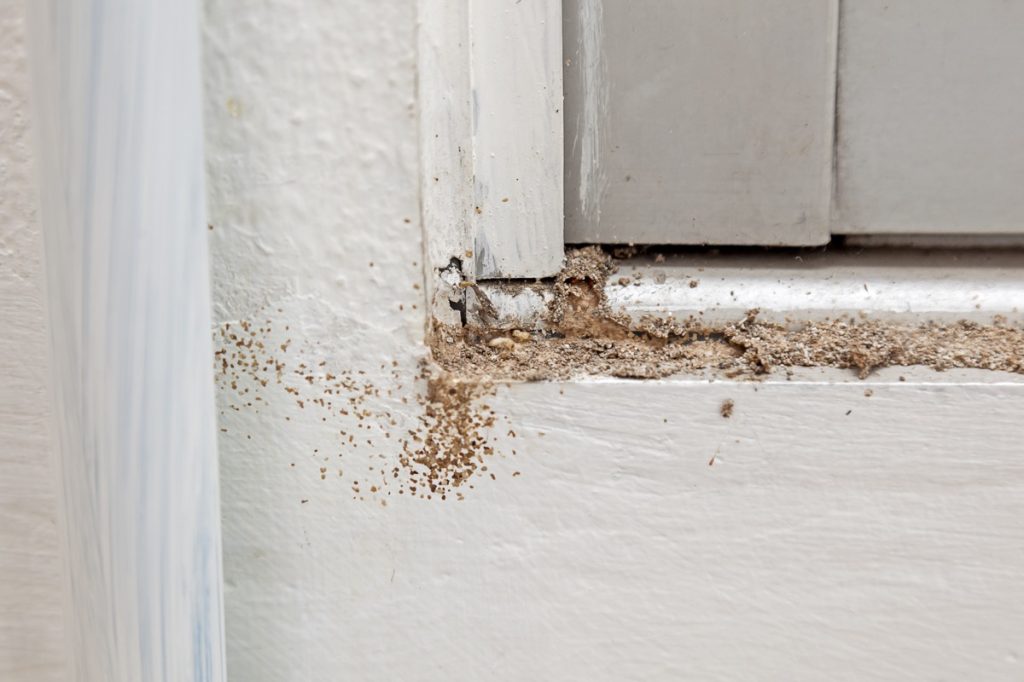Termite “Swarms” Are Starting Earlier This Year—Here’s How to Protect Your Home

Different types of pests can pose all kinds of problems to your home, but few can be as silently destructive as termites. The wood-eating insects can find their way into your house’s walls and foundation and wreak havoc as they chew through the very materials holding it all together. Staying vigilant for any signs of the destructive bugs can be instrumental in avoiding costly repairs and significant damage. And you might want to consider getting into gear, as experts caution that termite “swarms” are starting earlier this year. Read on to find out how you can protect your home.
READ THIS NEXT: 6 Things Attracting Mice Into Your Basement.
Swarms of termites are becoming active again earlier than usual.

Like most other pests, termites are affected by cold winter weather and typically become less active during the cooler months. But this year, experts from Orkin are warning that swarms of the insects are starting their destructive habits earlier than usual due to abnormal weather patterns.
This will be especially true in the Northeast U.S., where activity begins to pick up fastest once overnight temperatures reach 60 to 70 degrees Fahrenheit.
Other experts have noticed the change as well.
“The warmer temperatures and higher moisture levels in the air this year have contributed to an early start to the season,” Kristen Beebe, founder and owner of Beebes Pest & Termite Control, tells Best Life. “This combination of conditions makes it easier for termites to survive and reproduce, leading them to swarm earlier than usual.”
The pests can cause serious and costly damage to your home.

Unlike germ-spreading mice and potentially dangerous snakes, termites pose a more pressing threat to your home.
“The biggest problem with termites is the structural damage they cause,” says Joe Tomasiello from pest control company Deans Services. “Unlike other pests like carpenter ants—which only carve out the wood to create shelter for their colonies—termites actually eat the wood, including walls, flooring, furniture, and more.”
And while termites don’t carry any diseases, he warns they can cause allergic reactions or asthma attacks in some people.
Unfortunately, an infestation is not the kind of problem you can ignore: Tomasiello says it’s estimated that termites annually cause at least $5 billion in damages in the U.S. alone.
“What’s worse is that most home insurance policies do not cover this structural damage,” he adds.
For more pest control tips sent right to your inbox, sign up for our daily newsletter.
There are a few telltale signs that termites have made their way into your home.

Because they’re after the material that makes up the structural elements of your home, it might not be as easy to spot termites right away. And while seeing just one of the winged insects might not mean there’s a problem, a few key indicators can tip you off to an infestation.
“Some signs of termites include seeing mud tubes on the exterior of your home, swarmers, discarded wings, or piles of termite excrement—which can be easily mistaken for sawdust,” says Richard Estrada, owner of ATCO Pest Control. “You may also notice doors and windows that stick when you open them or hollow-sounding wood.”
There are a few ways to protect your home from infestations of termite swarms.

While there’s no foolproof way to protect your home from termites, it’s best to deal with them like other pests. That means being proactive and preventing an infestation before one can begin. Beebe says you can start by ensuring your home or building is sealed correctly.
“This means checking that all doors and windows have weather stripping installed and are fitted tightly so that no gaps are left for termites to enter,” says Beebe. “Additionally, it’s important to keep all wood and cellulose materials away from your home’s foundation to prevent easy access to termites.”
However, you should act fast once you notice a problem.
“If you suspect a termite infestation, it’s best to call an exterminator immediately,” says Tomasiello. “Exterminators will be able to spray for termites and set up baiting stations around your home.”
Tomasiello tells Best Life that there are plenty of different tactics to stopping termites depending on your needs. “Some companies apply treatments in the ground around your home to create a perimeter around the house, while others offer treatments for new builds, applying preventative treatments directly before pouring the foundation of the new structure.”